40 allergens required on food labels
The Importance of Food Labels | Requirements for Packaging 07.09.2018 · If someone accidentally ingests food they are allergic to, it can cause an allergic reaction and, in some cases, be severe and life-threatening. Therefore, it’s vital that you are aware of the 14 named allergens and what information you are legally required to include on your food packaging. › food › food-allergensgluten-freeFood Allergen Labeling And Consumer Protection Act of 2004 ... FALCPA requires that food manufacturers label food products that contain ingredients, including a flavoring, coloring, or incidental additive that are, or contain, a major food allergen using ...
Food Allergy & Anaphylaxis | Food Labeling | Food Labels Only crustacean shellfish (e.g. crabs, shrimp, lobster, or crayfish) and not mollusks (eg. clams, mussels, scallops, or squid) are required to be labeled on packaged goods. The labeling law applies only to foods regulated by the FDA.
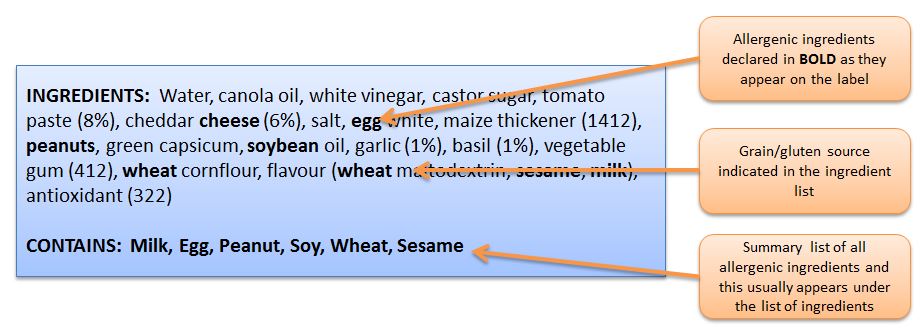
Allergens required on food labels
TTBGov - Major Food Allergen Labeling TTB has published an interim rule, effective July 26, 2006, allowing the voluntary labeling of major food allergens on the labels of wines, distilled spirits, and malt beverages. The regulatory provisions allowing the voluntary labeling of major food allergens are contained in T.D. TTB-53, published in the Federal Register on July 26, 2006. Allergen labelling for food manufacturers Free from food are special ranges of foods made without allergens. If a label states that your product is 'free-from milk' or, 'peanut free', it has to be based on specific and rigorous controls. These controls need to ensure that the final product is completely free of the particular allergen. This includes checking that all ingredients and packing materials do not contain this allergen … › food › food-labeling-nutritionFood Allergies | FDA - U.S. Food and Drug Administration Jun 23, 2022 · People with food allergies should read labels and avoid the foods they are allergic to. The law requires that food labels identify the food source of all major food allergens used to make the food.
Allergens required on food labels. Understanding the FDA Food Allergen Labeling Requirements - enKo Products Are We Required to List Allergens on Our Food Labels? Yes, manufacturers need to declare the presence of allergens in their product if it has any. It is required by law under the Food Allergen Labeling and Consumer Protection Act, which is simply known as "FALCPA." Food allergies occur when some types of food trigger an immune reaction. foodinstitute.com › focus › big-8-allergensThe Big 8 Food Allergens - The Food Institute May 09, 2020 · [Editor’s Note 1/13/2022: Please see our updated list that includes sesame here: The Big 9 Food Allergens] More than 170 foods have been reported to cause allergic reactions, but eight major food allergens, also known as the Big 8, are responsible for most of the serious food allergy reactions in the U.S., according to Food Allergy Research & Education. Allergens- Voluntary Labeling Statements | Food Safety and Inspection ... Issue Date June 2013. This guidance document assists firms formulate voluntary labeling statements regarding the possible presence of allergens in products. Label review for meat, poultry, and egg products is required by statute at 21 USC 607 (d), 456 (c), and 1036 (b), respectively. Under the Federal Meat Inspection Act (FMIA), the Poultry ... Food labelling and packaging: Ingredients list - GOV.UK If your food or drink product has 2 or more ingredients (including any additives), you must list them all. Ingredients must be listed in order of weight, with the main ingredient first.
UK Allergen Labeling Requirements - FoodChain ID New allergen labeling requirements in the UK will take effect on October 1, 2021. The new requirements state that all food prepacked for direct sale must bear a label with an ingredient list and if the food contains any of the 14 legislated allergens, these must be clearly identified on the label. The Food Information Regulations allow Member ... Food allergen rules | NSW Food Authority 2. Food that doesn't require a label Where a food is unpackaged or doesn't require a label, allergen information must be displayed in connection with the display of the food or provided to the customer on request. 3. Retail food service In a food retail setting such as a restaurant or café, food allergens must be declared if a customer ... How to read food labels | healthdirect Sugar: Sugar is a type of carbohydrate. It is better to choose healthier carbohydrates and to limit foods that are high in added sugars. Fibre: High fibre foods such as wholegrain bread and cereals improve digestion and help you to feel full. Sodium: This tells you how much salt the product contains. Eating too much salt is linked to high blood pressure and can lead to heart disease, … › business-guidance › allergen-labellingAllergen labelling for food manufacturers Free from food are special ranges of foods made without allergens. If a label states that your product is 'free-from milk' or, 'peanut free', it has to be based on specific and rigorous controls. These controls need to ensure that the final product is completely free of the particular allergen.
Food Allergen Labelling - Canada.ca Based on consultations with stakeholders, including allergy associations and the medical community, Health Canada developed amendments to the Regulations to enhance labelling requirements for specific priority allergens, gluten sources and added sulphites in prepackaged foods sold in Canada. Food Allergies | Food Safety and Inspection Service A food allergy is a potentially serious response to consuming certain foods or food additives. For those who are sensitive, a reaction can occur within minutes or hours, and symptoms can range from mild to life threatening. The eight leading causes of food allergies are milk, eggs, fish, shellfish, tree nuts, peanuts, wheat, and soybeans. Food Labels: Read It Before You Eat It! - American Academy of Allergy ... Ingredients of these most common eight allergens must be labeled with clearly recognized English names of the food source as listed above. The "contains" statement is "voluntary", but if used, must include ALL of the allergenic ingredients from the list of eight allergenic sources as described in item 14 of the 2006 guidance document. Tree Nut - FoodAllergy.org 05.09.2017 · Tree nuts are one of the eight major allergens that must be listed in plain language on packaged foods sold in the U.S., as required by federal law, either within the ingredient list or in a separate “Contains” statement on the package. For tree nuts, the specific variety must also be identified on the package. This makes it easy to see if tree nuts are present in a food item.
The Big 8 Food Allergens - The Food Institute 09.05.2020 · Soybean is another difficult food for the allergic consumer to avoid as it is used in many processed foods. Allergen Labeling. The Big 8 allergens must be declared on any processed food in accordance to the Food Allergen Labeling and Consumer Protection Act. Allergic consumers may accidentally encounter problem foods, as previously mentioned ...
Food Allergies | FDA - U.S. Food and Drug Administration 23.06.2022 · People with food allergies should read labels and avoid the foods they are allergic to. The law requires that food labels identify the food source of all major food allergens used to make the food ...
Food Labelling for the Food Allergic Consumer | FARRP | Nebraska This means that a food ingredient which can cause a reaction in food hypersensitive consumers may be in a food without being declared on the ingredients label. To help ensure this does not happen, the Food Allergen Labelling and Consumer Protection Act (FALCPA) was passed in the U.S. in 2004. This Act requires the presence of the eight major ...
Food Allergies | Food Safety and Inspection Service 01.12.2016 · All food products containing two or more ingredients are required by Federal regulations to bear an ingredients statement listing all ingredients by common or usual name in descending order of predominance. In addition, on January 1, 2006, FALCPA), passed by Congress in 2004, became effective. The FALCPA applies only to consumer packaged foods …
› safety-hygiene › food-allergy-andFood allergy and intolerance | Food Standards Agency There are a number of ways in which allergen information can be provided to you. This can depend on the type of food you buy and the type of food business you order from. Prepacked food. The 14 allergens must be emphasised within the ingredients list of pre-packed food or drink.
Food Allergen Labeling And Consumer Protection Act of 2004 … However, the eight major food allergens identified by FALCPA account for over 90 percent of all documented food allergies in the U.S. and represent the foods most likely to result in severe or ...
TTBGov - Allergen Labeling consistent with the provisions of the food allergen labeling and consumer protection act of 2004, falcpa, the interim rule defines a "major food allergen" to mean any of the following: milk, egg, fish (for example, bass, flounder, or cod), crustacean shellfish (for example, crab, lobster, or shrimp), tree nuts (for example, almonds, pecans, or …
Must allergens be declared on labels? - USDA Must allergens be declared on labels? Jul 17, 2019 Knowledge Article Yes. All food products containing two or more ingredients are required by federal regulations to bear an ingredients statement listing all ingredients by common or usual name in descending order of predominance.
Food allergy and intolerance | Food Standards Agency There are a number of ways in which allergen information can be provided to you. This can depend on the type of food you buy and the type of food business you order from. Prepacked food. The 14 allergens must be emphasised within the ingredients list of pre-packed food or drink. This can be done, for example, by using bold, italic or coloured ...
Allergen Labeling Requirements - Fortress Nutrition | Packaging & Labeling The first requirement for labeling says that a product label needs to contain the name and address of the manufacturer. Similarly, legal labeling should also contain contact details for a consumer line (or e-mail address) where consumers can reach the company about any concerns. Lastly, a detailed list of ingredients is also required by law ...
Food Allergen Labelling | Laws. Types Of Labels, Effectiveness There are 14 food allergens that you need to be aware of and these ingredients must be clearly marked and declared on any food offered for sale. Nuts (almonds, hazelnuts, walnuts, pecan nuts, sesame, Brazil nuts, pistachio, cashew, Macadamia or Queensland nut). Peanuts. Eggs including egg derived substances such as albumen. Milk and dairy.
› food › food-labeling-nutritionFood Allergies | FDA - U.S. Food and Drug Administration Jun 23, 2022 · People with food allergies should read labels and avoid the foods they are allergic to. The law requires that food labels identify the food source of all major food allergens used to make the food.
Allergen labelling for food manufacturers Free from food are special ranges of foods made without allergens. If a label states that your product is 'free-from milk' or, 'peanut free', it has to be based on specific and rigorous controls. These controls need to ensure that the final product is completely free of the particular allergen. This includes checking that all ingredients and packing materials do not contain this allergen …
TTBGov - Major Food Allergen Labeling TTB has published an interim rule, effective July 26, 2006, allowing the voluntary labeling of major food allergens on the labels of wines, distilled spirits, and malt beverages. The regulatory provisions allowing the voluntary labeling of major food allergens are contained in T.D. TTB-53, published in the Federal Register on July 26, 2006.


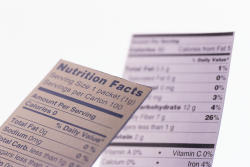


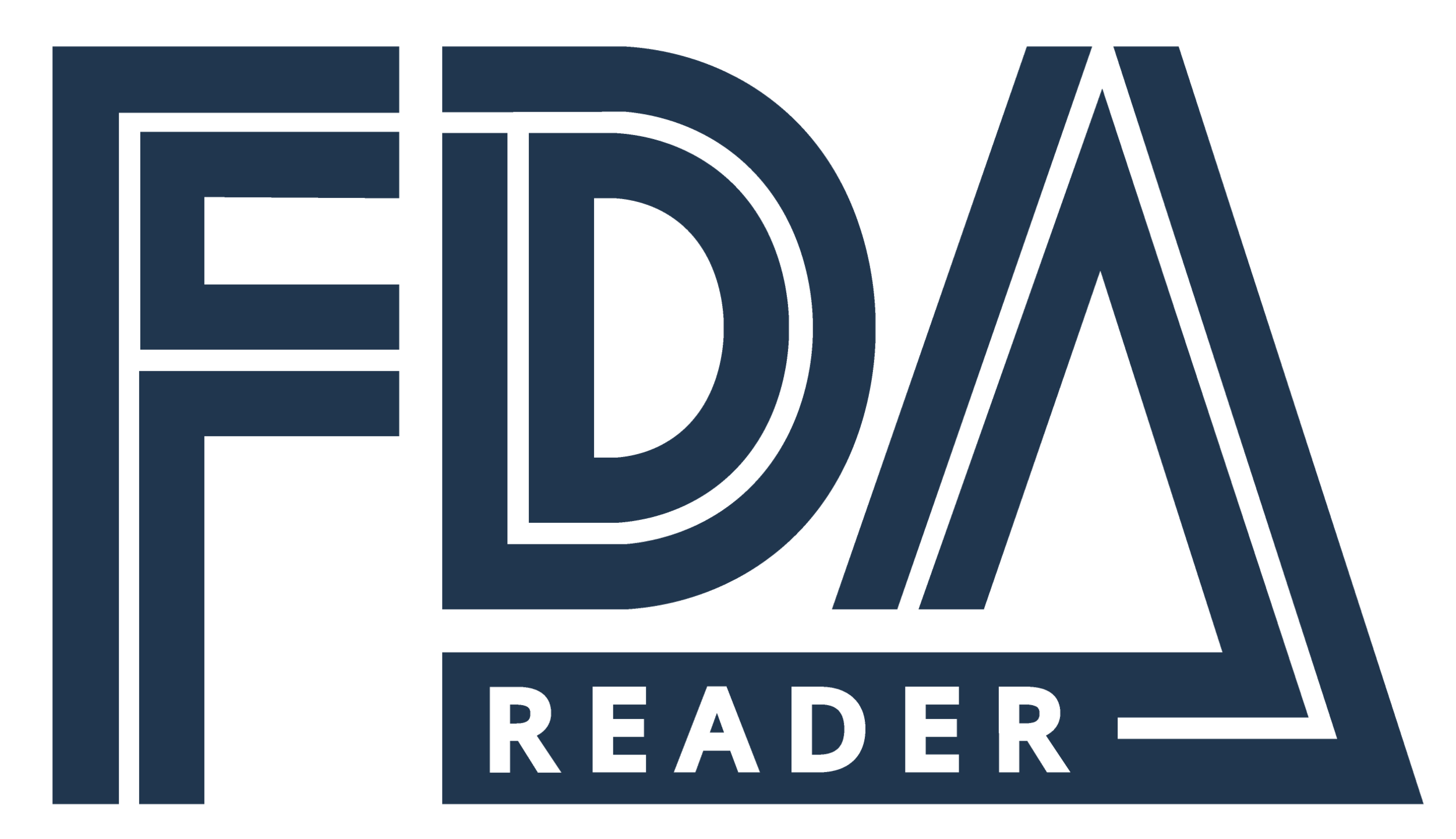
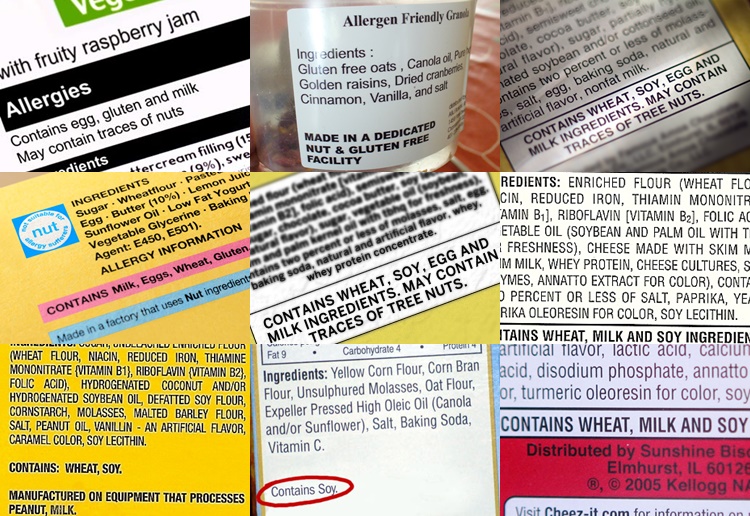


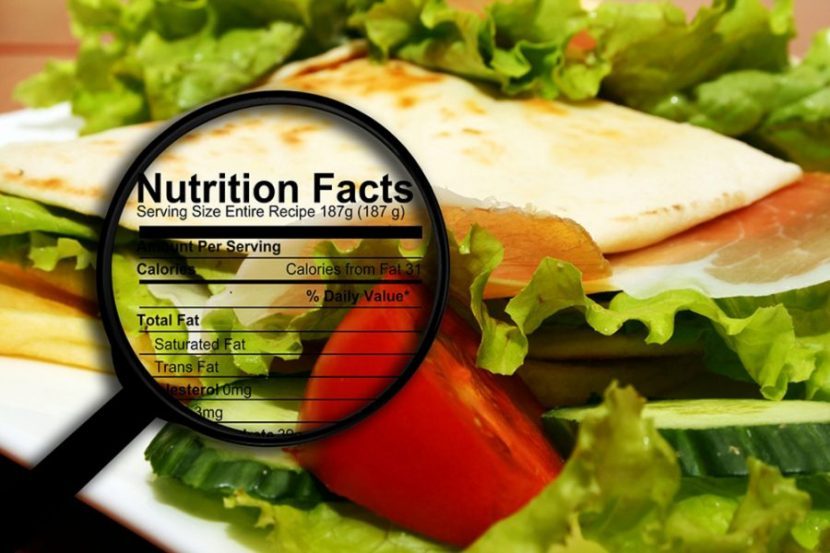




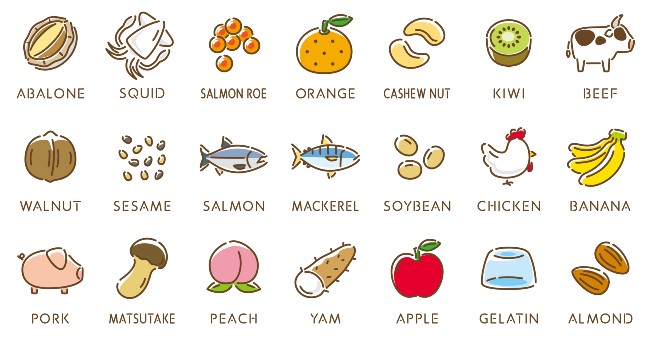


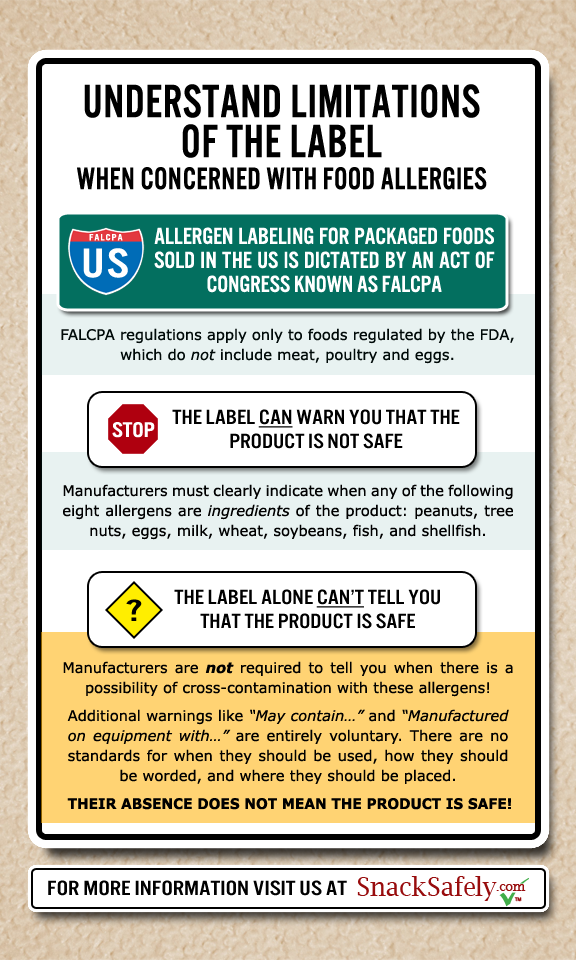


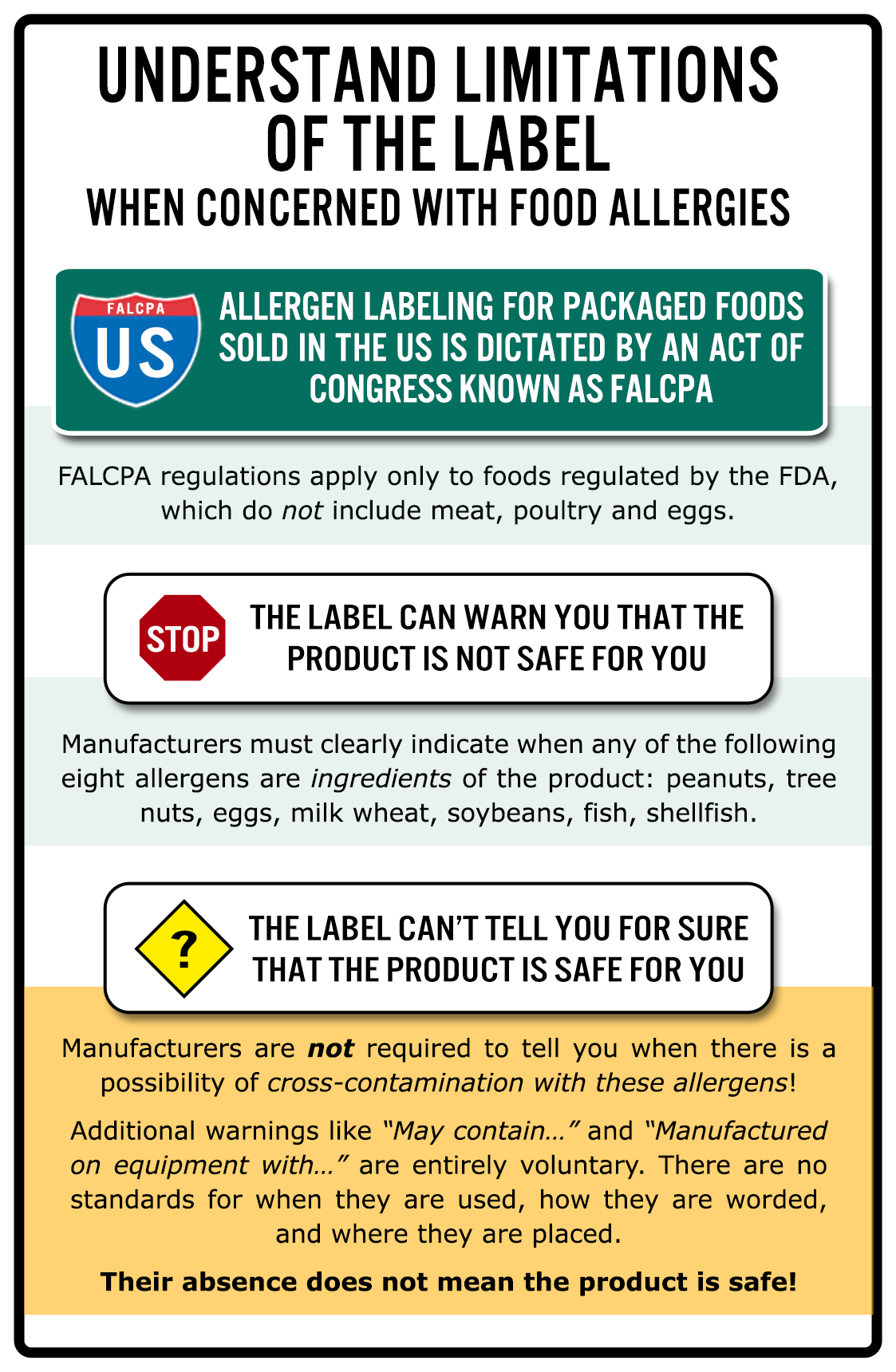
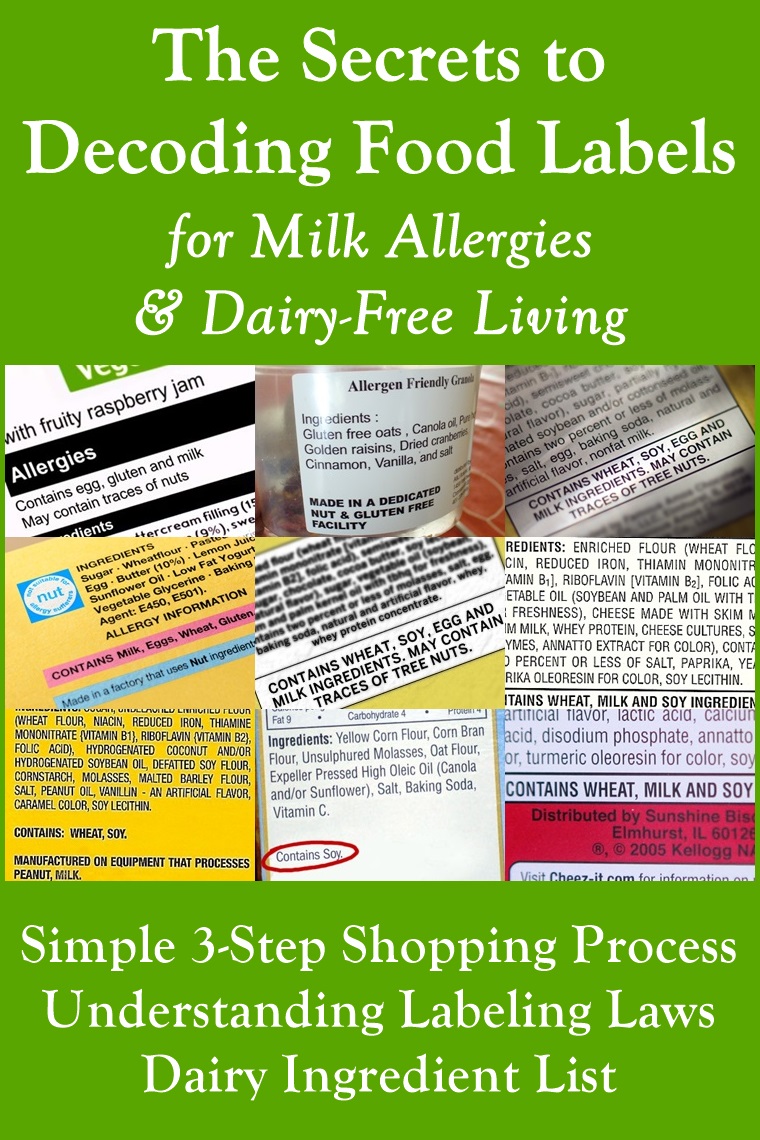
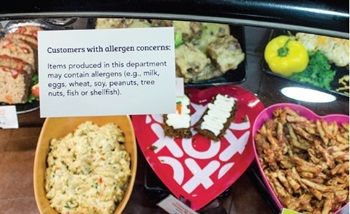
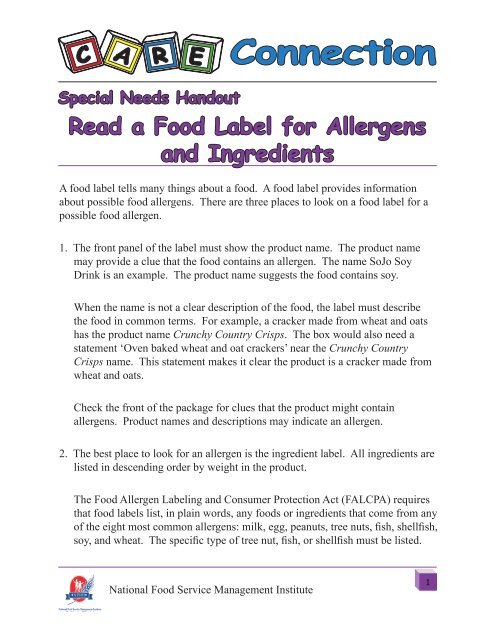

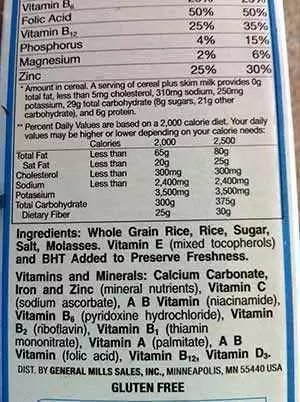
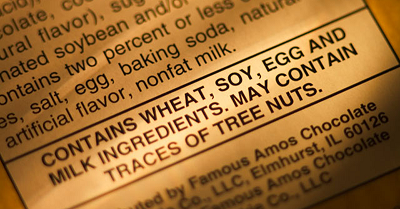
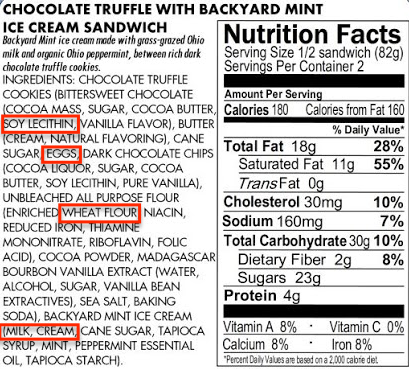
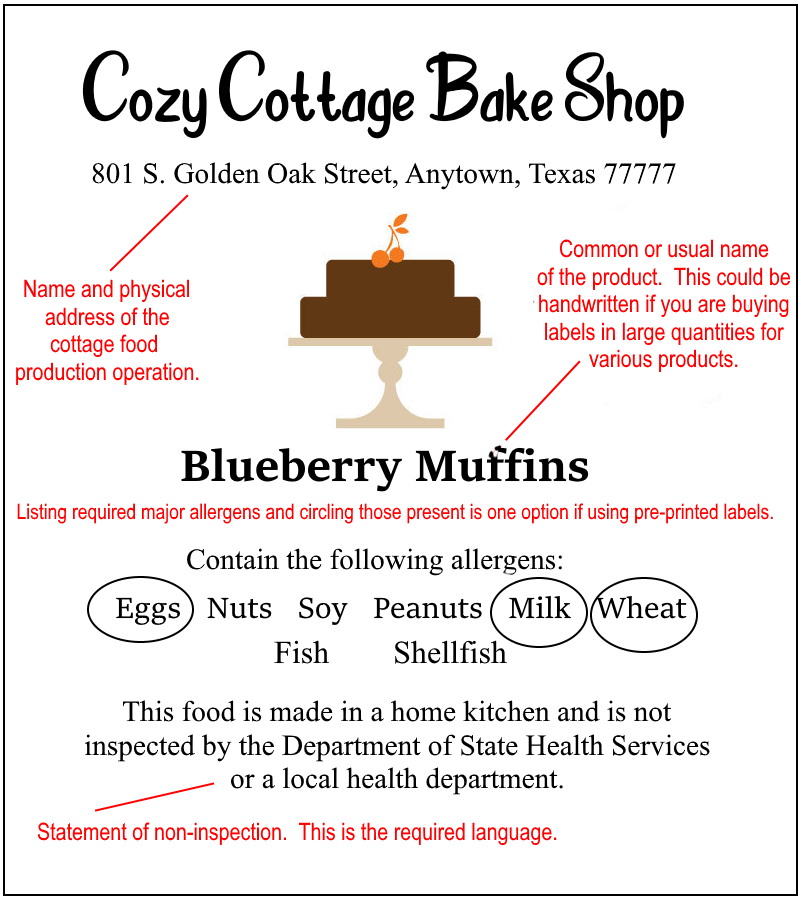
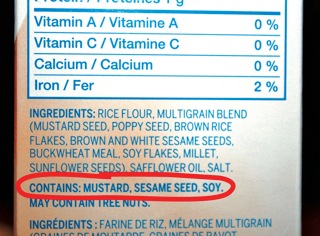
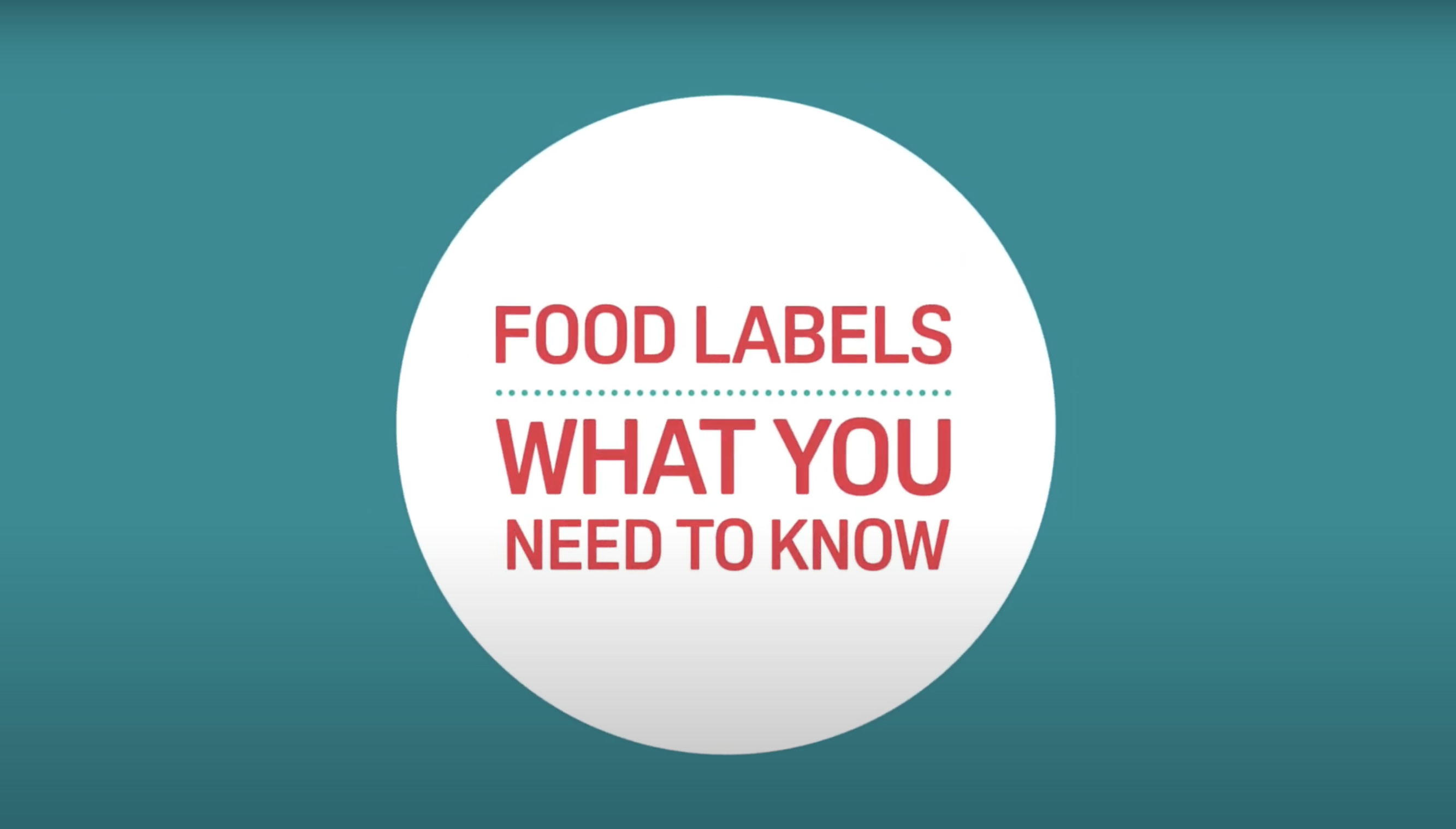

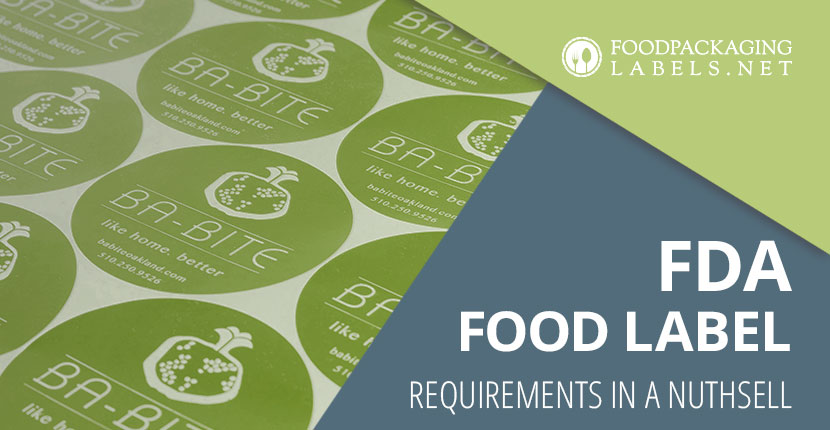
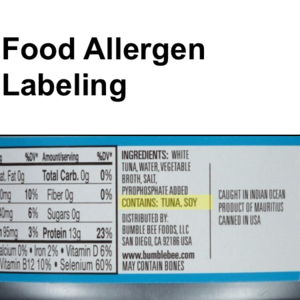

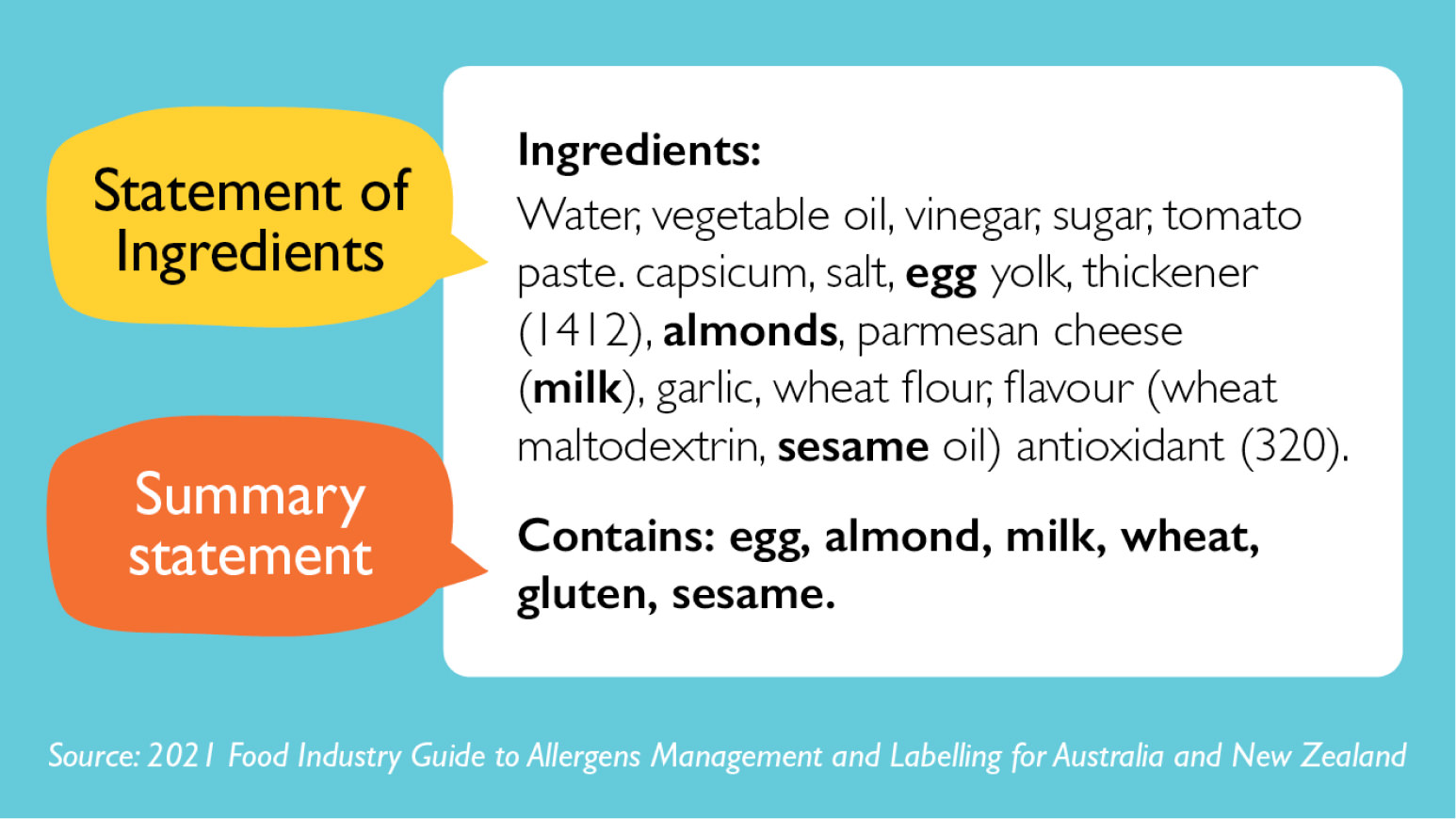
Post a Comment for "40 allergens required on food labels"